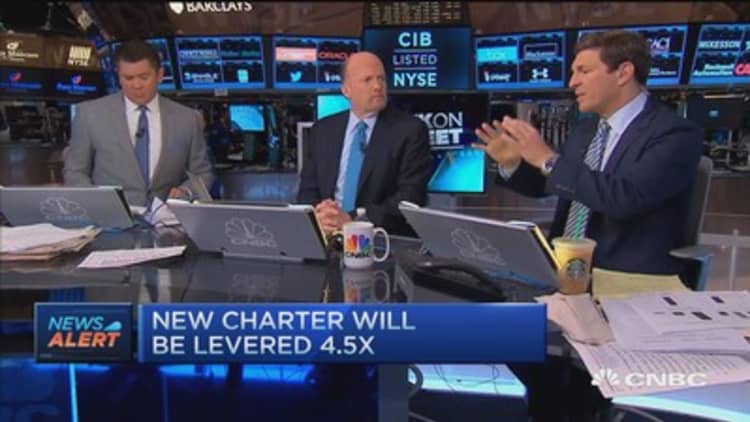
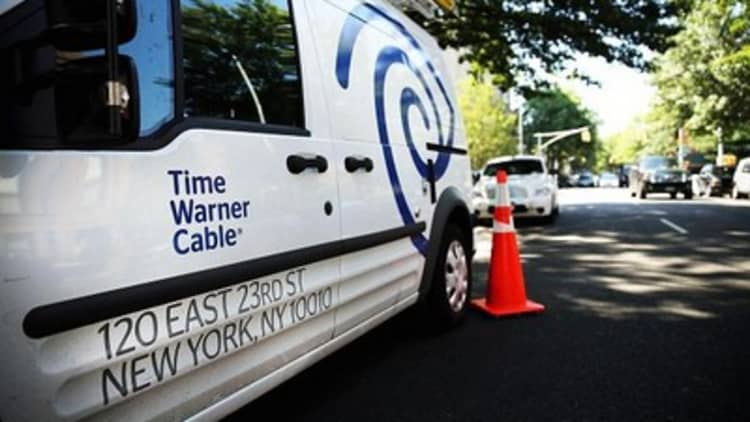
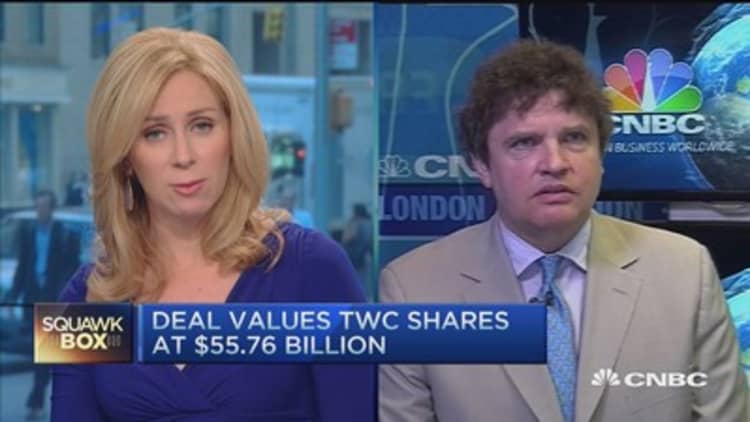
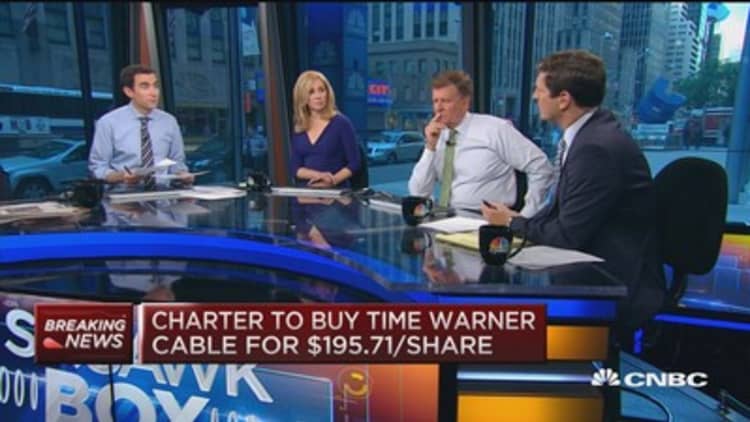
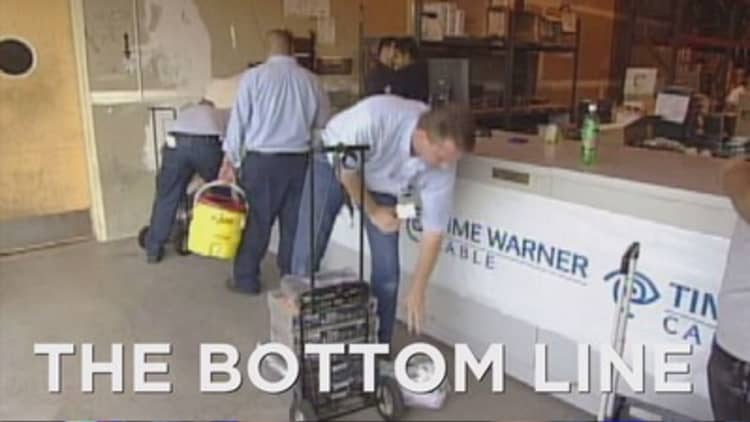
Charter Communications confirmed Tuesday it will purchase Time Warner Cable for $55 billion in a deal that would merge the second and third biggest U.S. cable companies and create a larger rival to Comcast Corp.
The deal values each Time Warner Cable share at about $195.71 based on Charter's closing price on May 20, the companies said in a statement. The transaction will include a $2 billion breakup fee.
Time Warner Cable shares were up around 5 percent in premarket trading; Charter's were up slightly.
Charter also announced it would acquire Bright House Networks, the sixth-largest U.S. cable company, for $10.4 billion. The combined companies could have as many as 23 million total customers, just behind Comcast's 27.2 million customers. (Comcast owns NBCUniversal, CNBC's parent company.)
Bright House and Charter had extended their merger talks after Comcast's deal with Time Warner Cable fell through. Charter's previous agreement with Bright House was contingent on Comcast's completion of the buyout of Time Warner Cable.
CNBC's reported details of the impending deal on Monday.
The announcement comes a month after Comcast dropped plans to purchase Time Warner Cable for about $45 billion. That deal faced challenges from the Federal Communications Commission, which was concerned the combined companies would exercise to much control over broadband Internet networks.
The price Charter will pay represents a 23-percent premium over the Comcast deal. Matt Harrigan, cable and satellite analyst at Wunderlich Securities, told "Squawk Box" that Time Warner Cable CEO Rob Marcus and his team deserve credit for turning around customer count since the Comcast agreement was struck.
Time Warner Cable reported a 3.5 percent rise in revenue as it added more residential video and high-speed data subscribers than expected in its latest quarterly report. It also added a net 30,000 residential video customers in the first quarter, more than double the 11,800 market research firm FactSet StreetAccount had estimated.
"Certainly there will be some synergies here, but when you look at where it was a year and a half ago, when it was really bleeding video customers, and you were absolutely dead in the water on broadband, I think probably $140 or so was about the right price [then], because there was a lot of risk," Harrigan said. "I think some of that perception of risk has dissipated."
Read More It's time to embrace online video: Time Warner Cable CEO
Investors should not entirely discount risk because the cable industry may see competition heat up even more, he added.
A merger of Charter and Time Warner Cable, with other related deals, would eliminate one of the country's top Internet providers and control more than 20 percent of the broadband market, according to data from MoffettNathanson.
The Comcast-Time Warner Cable deal rejected by regulators would have created a provider with roughly 40 percent of the U.S. high-speed Internet market.
Charter hopes its deal for Time Warner Cable will be viewed more favorably by regulators. FCC Chairman Tom Wheeler reached out to the chief executives of the two companies last week to convey that the agency is not opposed to any and all cable deals, The Wall Street Journal reported. Any deal would be considered on its own merits, the paper quoted Wheeler as saying.
Read MoreGuess what Big Media pitched the ad guys
"The FCC reviews every merger on its merits and determines whether it would be in the public interest," Wheeler said in a statement Tuesday. "In applying the public interest test, an absence of harm is not sufficient. The Commission will look to see how American consumers would benefit if the deal were to be approved."
Wunderlich Securities has a pretty high degree of certainty that the deal will get done, Harrigan said. "I think it could be conceived as pro-competitive, and certainly offer more diversity of choice."
—CNBC's David Faber and Reuters contributed to this story.
—Disclosure: Comcast owns NBCUniversal, the parent company of CNBC and CNBC.com. Harrigan does not own shares of Time Warner Cable or Charter Communications. His firm does not hold greater than a 1 percent share in the stock and does not provide investment banking services to either company.


